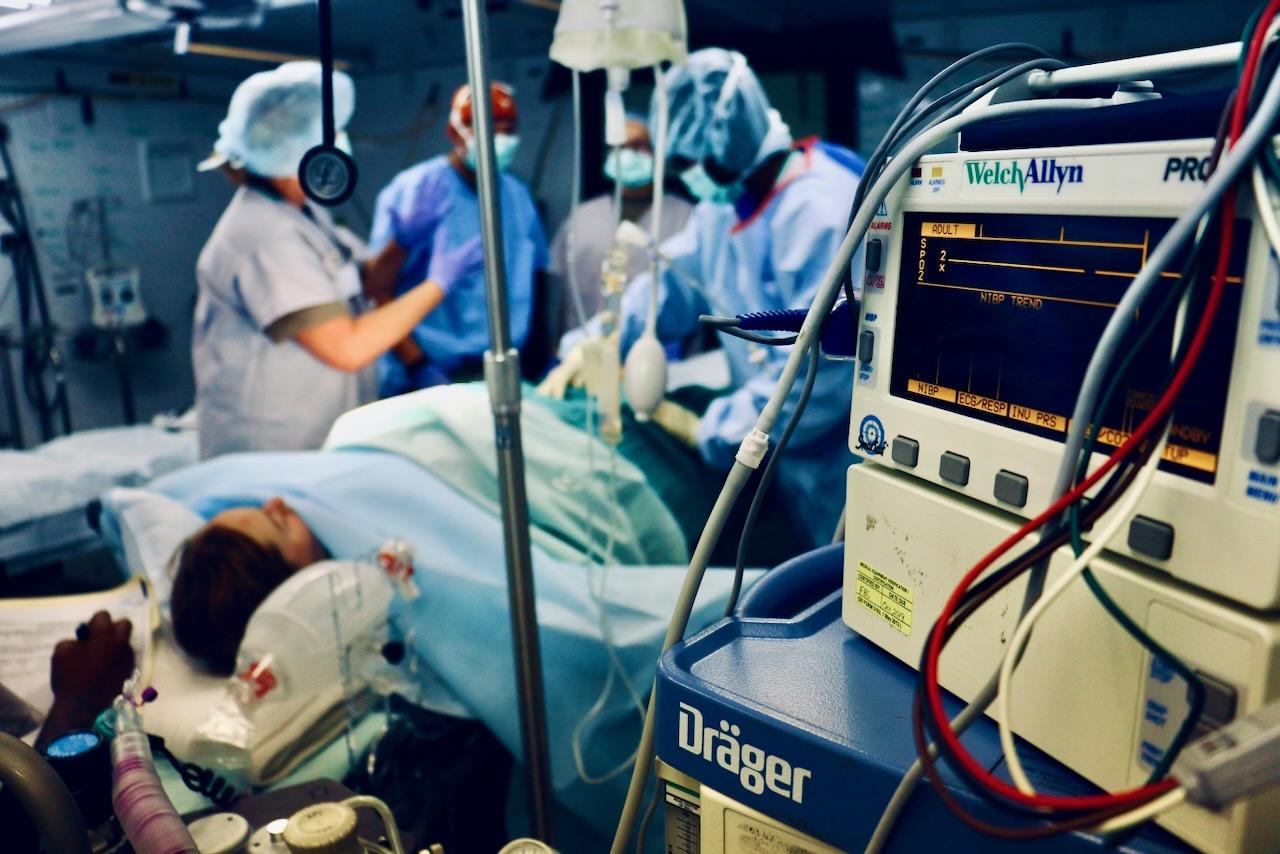
The Trauma Research and Combat Casualty Care Collaborative (TRC4), an initiative of The University of Texas System, has awarded grants to four UT researchers to dramatically improve the chances of survival from trauma and its after effects — in the battlefield and civilian life.
Awarded across multiple UT institutions, TRC4 research grants demonstrate how innovations developed for military medicine are driving progress in trauma care for all Texans.
TRC4 was established by The University of Texas System Board of Regents and the Texas Legislature and facilitates and funds groundbreaking collaborative basic, clinical, and translational research between UT institutions and the U.S. Department of Defense and the Defense Health Agency.
The University of Texas at Austin award recipients are:
- Nanshu Lu, professor, aerospace engineering and engineering mechanics, Cockrell School of Engineering
- Jordan Amadio, clinical affiliated faculty, neurosurgery, Dell Medical School
- Zhengrong Cui, professor, molecular pharmaceutics and drug delivery, School of Pharmacy
- Robert Messing, professor and chair, neuroscience, College of Natural Sciences
Lu will receive a Pre-Clinical Translational Research award, which aims to further develop research supported by substantial preliminary or published data into potential therapies, and Amadio, Cui and Messing will receive Proof of Concept Research awards, which advance innovative early-stage ideas into feasible projects. UT Austin awards totaled nearly $800K.
"Trauma remains the leading cause of death for individuals under the age of 45, so research and innovation in this arena is truly lifesaving," said Dr. James Bynum, TRC4 Executive Director. "Thanks to the continued support of the UT System Board of Regents and the Texas Legislature, these new grants build on TRC4's vital work in advancing trauma care for our service members and all Texans."
Award Recipients

Professor Nanshu Lu, an interdisciplinary researcher who works across several departments in the Cockrell School of Engineering, designs and engineers flexible, stretchable electronic devices for the human body. Her TRC4-funded project, "Multimodal Wearable E-Tattoo Sensors for the Pre-Hospital Detection of Internal Hemorrhage," will explore new approaches to monitoring and understanding human physiology through advanced wearable technology.
In collaboration with the U.S. Army Institute of Surgical Research Lu aims to develop next-generation systems that can support earlier detection, real-time insight into a patient's condition and improved management of trauma-related injuries. The long-term goal is to enhance care and survival outcomes in both military and civilian settings.

Jordan Amadio, a board-certified neurosurgeon on the faculty at Dell Medical School and affiliated faculty within Texas Robotics, focuses on minimally invasive spine surgery, surgical neuro-oncology and neurotrauma in his practice. He received a TRC4 award for the project "Development of a Morphable Pedicle Screw System for Minimally Invasive Fixation of Unstable Spine Fractures in Military and Civilian Trauma Settings."
Along with Co-PI and mechanical engineering associate professor Farshid Alambeigi, Amadio is investigating a new kind of spinal implant called a "morphable pedicle screw" designed to improve treatment for severe spinal fracture. These fractures, often caused by vehicle crashes, falls or battlefield explosions, can lead to paralysis if not treated quickly and effectively. Current surgical tools rely on rigid metal screws and rods that are difficult to place precisely, especially in emergency or combat conditions where advanced imaging equipment is not available.
The flexible screw adapts to the spine's natural curves, allowing surgeons to stabilize fractures with smaller incisions and fewer complications. Early tests show it provides stronger, more precise fixation than current options — offering faster, safer treatment for soldiers in the field and better recovery for civilians, especially older adults.

Zhengrong Cui, professor of molecular pharmaceutics and drug delivery, earned a TRC4 award for the project, “Dry Powders of Whole Blood Prepared by Thin-Film Freeze-Drying.” He specializes in developing novel pharmaceutical formulations, including highly stable dry powders for drug and vaccine delivery.
College of Pharmacy colleague and co-PI Robert Williams is collaborating with Cui to develop a novel methodology to make blood easier to store, transport and use in emergencies. Using a technology called thin-film freeze-drying, the team is creating a powder form of whole blood that can be rehydrated quickly without losing cell viability. This innovation could replace the need for refrigerated or frozen blood, which has a short shelf life and is difficult to preserve in combat or disaster settings.
If successful, thin-film freeze-dried blood could transform trauma care for both soldiers and civilians by ensuring that life-saving transfusions are available anywhere — from remote battlefields to rural hospitals. The research team is also working with the U.S. Army Institute of Surgical Research to optimize the process, aiming to produce blood powders that remain stable at room temperature and rehydrate readily for immediate use in critical situations.

Robert Messing, Department of Neuroscience professor and chair, studies mechanisms that underlie addiction and chronic pain with the goal of identifying new drugs to treat these conditions. His work is paving the way for more effective therapies for people struggling with substance use disorder and sustained pain.
Through his TRC4-funded project on reducing neuropathic pain after traumatic nerve injury, Messing and co–principal investigator Andrew Gaudet, associate professor of psychology, are advancing research to treat chronic pain resulting from nerve damage with a new, non-opioid medication strategy. The project is titled "Does a small molecule inhibitor of protein kinase C epsilon reduce neuropathic pain following traumatic nerve injury?"
Nerve injury pain is one of the most persistent and difficult-to-treat conditions faced by soldiers and civilians alike. By developing safer, more effective ways to prevent and reverse long-term pain after trauma, their work could improve recovery and quality of life for people healing from injuries, surgeries, and other forms of physical trauma — while reducing dependence on opioids.
For more information about the TRC4 grants, visit the TRC4 website.

